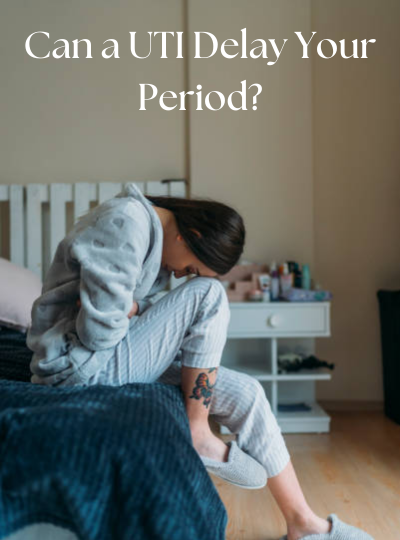Why do I poop so much on my period?
There are several reasons why someone might experience changes in bowel movements during their period, including:
- Prostaglandins: Prostaglandins are hormones that help contract the uterus to expel the lining during menstruation. These hormones can also cause the muscles in the gastrointestinal tract to contract, which may increase bowel movements.
- Hormonal changes: Changes in hormones during menstruation, such as estrogen and progesterone, can affect the digestive system, causing constipation or diarrhea.
- Changes in diet: During menstruation, some women may crave or consume certain foods, such as dairy products, which can cause digestive upset or constipation.
- Stress and anxiety: Menstrual cramps, mood swings, and other symptoms associated with menstruation can cause stress and anxiety, which can in turn affect the digestive system, leading to changes in bowel movements.
Is pooping during periods common?
Yes, it is common to experience changes in bowel movements during periods. Some people may experience an increase in the frequency of bowel movements, while others may experience constipation or difficulty passing stool. According to a poll conducted by Clue, a period tracking app, 41% of respondents reported that they experienced changes in bowel movements during their period, and 10% of respondents reported experiencing constipation during their period.
Changes in bowel movements during periods are generally temporary and often resolve once the menstrual period is over. However, if digestive problems persist beyond the menstrual period, it's important to speak with a healthcare professional to rule out any underlying medical conditions.
Additionally, it's important to stay hydrated and maintain a healthy diet during your period, as dehydration and over-consuming foods that can cause gas or digestive upset can exacerbate any existing digestive issues.
Als read - Drinks that reduce period cramps
Why does the poop smell so bad during this period?
The smell of feces is primarily due to the presence of various compounds produced during the digestion process and the activities of bacteria in the gastrointestinal tract. Several factors can contribute to a particularly strong or unpleasant odor during certain periods:
- Diet: The types of food you consume can influence the smell of your stool. Foods with strong odors, such as certain spices, garlic, onions, and certain types of meat, can contribute to a more potent odor.
- Digestive processes: The breakdown of food in the digestive system involves the action of enzymes and bacteria. Different types and amounts of bacteria in your gut can affect the smell of your feces. Changes in your diet or disruptions to your normal digestive processes can impact the composition of these bacteria.
- Hydration: Dehydration can concentrate the components of your stool, making it more pungent. Staying adequately hydrated helps maintain a balanced digestive system.
- Illness or infection: Infections or illnesses affecting the gastrointestinal tract can alter the normal digestion process and result in changes to the smell of feces. Infections may introduce different types of bacteria or disrupt the balance of the gut microbiota.
Also read - Why do you lose more period blood in the toilet than on your pad?
Are Constipation or diarrhea common during the period?
Gastrointestinal symptoms like constipation and diarrhea are common during a woman's period. Studies have shown that approximately 11% to 32% of women experience gastrointestinal symptoms during menstruation, with constipation and diarrhea being the most common. The hormonal changes that occur during menstruation can slow down the digestive system, leading to decreased bowel movements and increased constipation.
Additionally, some women experience changes in stool consistency during menstruation, which can also contribute to constipation. Diarrhea can also be a common symptom during menstruation, potentially due to the hormonal changes that occur during menstruation, which can affect the digestive system and cause increased gut movement and loss of water.
It's important to note that changes in bowel movements during periods can be short-lived and are normally resolved once the menstrual period is over. However, if digestive issues persist beyond the menstrual period, it's important to speak with a healthcare professional to rule out any underlying medical conditions.
Also read - Can I get a pap smear on period?
Do I have to change my tampon every time I poop?
No, you don't have to change your tampon every time you poop. are designed to be left in place for several hours, even when you use the restroom. However, if you notice that your tampon is saturated or full, it's a good idea to change it to prevent any leakage or discomfort. It's also important to follow the instructions on the tampon packaging and change it at least every 8 hours to avoid the risk of Toxic Shock Syndrome (TSS), which is a rare but serious illness.
Also read - Do tampons expire?
How to ease pooping problems during periods?
Here are a few tips to help ease pooping problems during periods:
- Stay hydrated: Drinking plenty of water helps to keep the body hydrated and can also help to soften stools, which can make it easier to pass.
- Eat plenty of fibre: Eating foods high in fibre, such as fruits, vegetables, and whole grains, can help to keep the digestive system functioning smoothly, which can help to ease digestive issues related to menstruation.
- Avoid foods that cause gas or bloating: Certain foods, such as beans, dairy, and broccoli, can cause gas and bloating, which can worsen digestive issues during periods.
- Try exercise: Light exercise, such as walking or yoga during periods, can help to stimulate the digestive system and promote regular bowel movements, which can help to ease digestive issues during periods.
- Try over-the-counter medications: Over-the-counter medications, such as antacids or laxatives, may help to relieve symptoms of constipation or diarrhea.
- Seek medical attention: If digestive issues persist beyond the period or are severe, it's important to speak with a healthcare professional, as this could be a sign of an underlying medical condition.
Also read - Hymen Blood vs Period Blood
Precautions to take and cleanliness habits to follow after pooping during periods?
Here are a few tips to help keep clean and hygienic after pooping during periods:
- Always wash your hands: After pooping during your period, be sure to wash your hands thoroughly with soap and water for at least 20 seconds, especially if you are changing your tampon.
- Use a separate tissue or toilet paper to wipe your bottom when passing gas: If you notice that you are gassy during your period, use a separate tissue or piece of toilet paper or intimate wipes to wipe your bottom to prevent cross-contamination between your bottom and your menstrual product.
- Keep your period products clean: Be sure to change your menstrual pads or tampons regularly to ensure they are not worn, dirty, or contaminated, which can lead to infections or other problems.
- Wash your hands after handling period products: After changing your tampon or menstrual cup, be sure to wash your hands thoroughly with soap and water for at least 20 seconds to prevent cross-contamination or other infections.
- Dispose of period products properly: Be sure to dispose of your period products properly, such as by wrapping them in toilet paper or other disposable material before disposing of them in the garbage can.
Also read - Important things you should avoid during periods
What are some other stomach issues that can be faced during Periods?
During periods, a woman's body experiences many physical and hormonal changes that can lead to various stomach issues, including:
- Nausea and vomiting: Hormonal changes during menstruation can also lead to nausea and vomiting. This can be exacerbated by stress or anxiety related to menstruation, or due to an upset stomach from certain foods or medication.
- Irritable bowel syndrome (IBS): Hormonal changes during menstruation can trigger the symptoms of irritable bowel syndrome (IBS) in a woman who already has it. This can include bloating, constipation, diarrhea, and pain.
Also read - Can you eat papaya during periods?
When to Consult a Healthcare Professional
- Bloating, gas, or cramping that doesn't resolve within a few days: While some discomfort during your period is normal, severe or prolonged bloating, gas, or period cramps can be symptoms of other conditions, such as Irritable Bowel Syndrome or Crohn's Disease.
- Constipation that persists for more than 3 days: Constipation can be caused by hormonal changes during your period, but it should improve within a few days after your period ends. If constipation persists beyond this time, it can be a sign of other issues, such as a lack of fibre in your diet or certain medical conditions.
- Diarrhea or frequent bowel movements for more than 2 days: Hormonal changes during your period can cause temporary changes in your gut microbiome, leading to diarrhoea. While this is usually harmless, persistent diarrhoea can be a sign of other conditions, such as food poisoning or bacterial infection.
- Nausea and vomiting that persists beyond 24 hours: Nausea and vomiting can be a normal symptom of your period, but if they persist beyond 24 hours, it could be a sign of other issues, such as a stomach virus, a hormonal imbalance, or an underlying medical condition.
- Bloody stools: Bloody stools are never normal and should be reported to your healthcare provider immediately, especially if they are accompanied by other symptoms like severe abdominal pain, fever, or weight loss.
- Abdominal pain that isn't relieved by over-the-counter medication or persists for more than a few days: While mild cramping is normal during your period, severe or prolonged abdominal pain could be a sign of other conditions, such as an ovarian cyst or appendicitis.
In general, if your stomach issues don't resolve within a few days or worsen over time, or if you have other unusual symptoms along with your stomach issues, it's important to contact your healthcare provider to rule out any underlying medical conditions.
Read more
Can Sleeping Position Affect Your Periods?
Is Watery Period Blood a Sign of Pregnancy?










